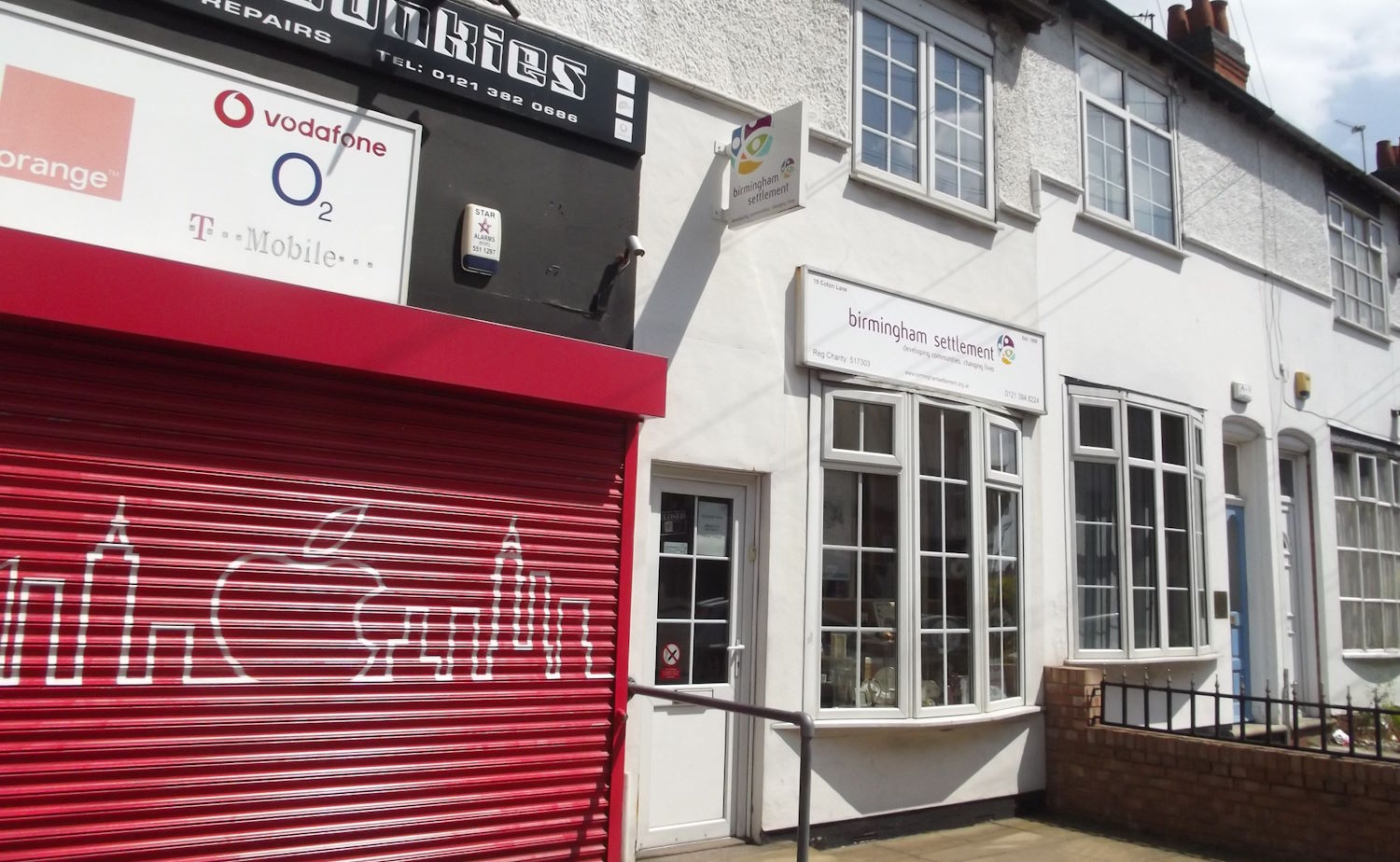Poverty and opportunity: 100 years of the Birmingham Settlement. John Glasby explores the development of the settlement’s work
Photograph: Birmingham Settlement by Elliot Brown flickr | ccbysa4
______
Established on 29th September 1899 by a group of wealthy female philanthropists, the Birmingham Settlement was initially a women’s settlement, staffed by female residents and working primarily with women and children. Based in one of the most deprived inner-city areas of Birmingham, the settlement sought to work with poverty in its widest sense, combating the restriction of life opportunities, stigma, exclusion, powerlessness and lack of choice which poverty engenders. Early activities included a penny bank, services for disabled children, an infant welfare clinic, free legal advice, a series of recreational clubs and even a temperance pub! From the very beginning, the Settlement worked closely with the newly-formed University of Birmingham, providing accommodation and placements for students and contributing to social work training courses. In 1919 the Birmingham Women‘s Settlement became the Birmingham Settlement in recognition of its work with all sections of the community, developing an increasing number of projects for boys and men. During the inter-war period, the settlement campaigned for maintenance payments for divorced women, constructed the area’s first mortuary, established a housing association, provided a library and continued with much of its earlier work. Also at this time, a second branch of the settlement was opened on the new council estate built on the edge of the city at Kingstanding.
During the middle part of the century, the settlement ran two Citizen’s Advice Bureaux, provided a hostel for homeless women and children and began to pioneer a series of community care services for older people. The latter in particular were to become a key feature of the settlement’s post-war work, anticipating national policy developments by many years. In the 1970s and 1980s there were further innovations, with the settlement pioneering the concept of money advice through a centre believed to be the first of its kind in the world. Other key projects sought to provide free legal advice, promote adult literacy, encourage local regeneration, improve the environment and provide recreational schemes for children and young people. From the late l970s, the decline of Birmingham’s manufacturing industries created widespread and long-term unemployment, and the settlement responded with a series of’ projects designed to help people regain work, rebuild their lives and restore their confidence. As these projects developed, they began to make special provision for minority groups traditionally excluded from mainstream services (such as the young, women, older people and members of ethnic minorities).
On the eve of its centenary, the Birmingham Settlement is a large and thriving voluntary organization with 24 different projects, 120 members of staff, 250 volunteers and an annual budget of nearly £2.5 million. Despite this, its finances have often proved insufficient for the task in hand, and the settlement’s ability to survive and prosper over 100 years owes much to its capacity for innovation, its dedication and its flexibility, coupled with an ongoing need for its services. In 1999, the settlement continues to work with individuals and communities that are just as impoverished relative to the society around them, as they were when it first opened its doors to the public. Sadly, this chronic poverty shows no sign of abating, and as the Birmingham Settlement moves forward into a second century and a new millennium, its work is only just beginning.
For full details of the Birmingham Settlement’s history, see Glasby, J. (1999) Poverty and opportunity: 100 years of the Birmingham Settlement. Studley. Brewin Books (ISBN 1-85858-151-6 paperback or 1-85858-150-8 hardback).
Copies are available from the Birmingham Settlement (0121 248 3030) or from most good bookshops.
© Jon Glasby 1999.
